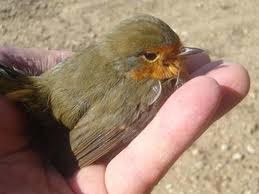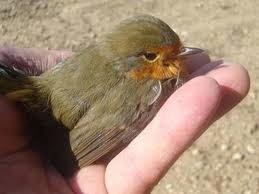According to a report on the BBC website, citing a report by the bird protection organizations RSPB and the Cyprus Bird Association (BirdLife Cyprus), the areas of the British bases in Cyprus have become the focus of illegal bird trapping.
A spokesman for the Bird Association told the BBC that since 2002, cases of illegal trapping have increased by 54%. Some of the largest bird trapping operations occur within the boundaries of the bases, he adds.
Martin Helikar of the Cyprus Bird Association explains to the British network that in Dhekelia "organized criminal groups created labyrinths of acacias, irrigating plantations and forming corridors between them to set up long nets". He also notes that sound systems with recorded bird sounds are often used to attract migratory birds to almost invisible nets.
As stated, the purpose of these traps is to kill the birds and sell them to restaurants that want to offer their customers chickens. "A dozen birds can bring up to 80 euros," explains a representative of the Bird Association.
According to the researchers, it is estimated that during the bird trapping period in 2013, mainly in the fall, 1,5 million birds were killed in Cyprus. This assessment is expected to be made public in early 2014, as part of a more comprehensive report on bird trapping in the country. The report is based on data and measurements of a decade.
The Cyprus Bird Association said it was calling on the British Ministry of Defense to do more to tackle the illegal practice. A ministry spokesman told the BBC that the matter was already being taken "extremely seriously" and that base police were conducting an ongoing operation against the perpetrators. "We have worked closely with BirdLife Cyprus and on many occasions have invited them to monitor our efforts to crack down on this heinous illegal activity. Unfortunately, as long as there is a demand for this food the activity is more likely to continue. "But the bases' authorities will continue to do what they can to try to stop it," said a spokesman for Britain's defense ministry.
A Cypriot security official at the base in Dhekelia tells the BBC that those setting up bird traps have become professionals. "When they see police vehicles, even without insignia, they communicate with each other with mobile phones and leave the area. Therefore it is difficult to capture them.
The Cyprus Bird Association also expresses the hope that the new data will convince the Cypriot Government to take action against the restaurants that serve the illegal food.

